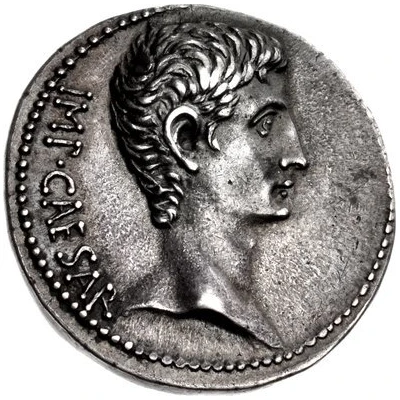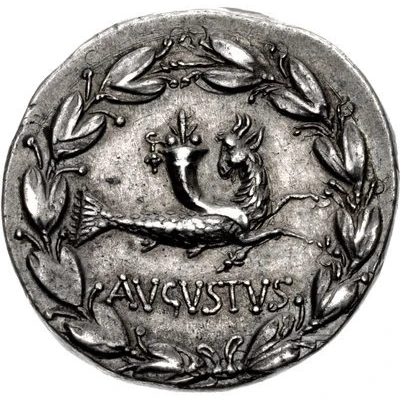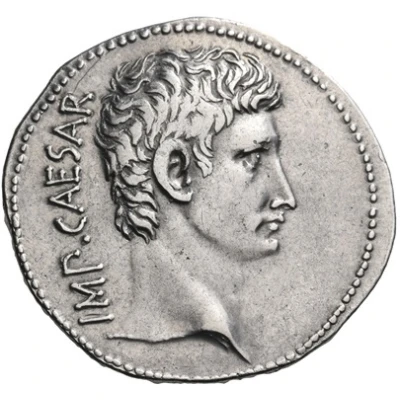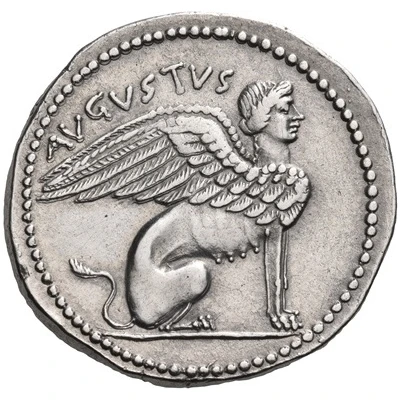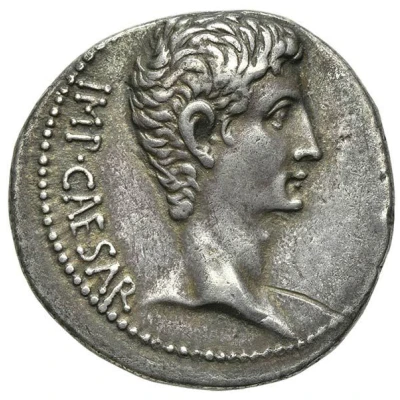
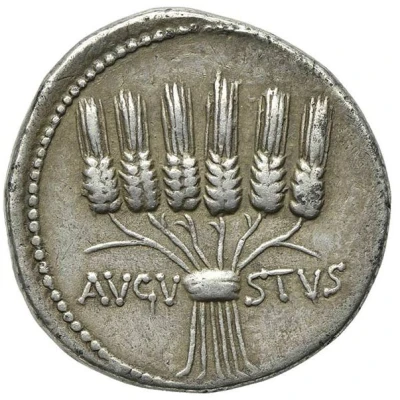

© Bertolami Fine Arts
Cistophorus - Augustus AVGVSTVS 27 BC - 26 BC
| Silver | 11.5 g | 25.5 mm |
| Issuer | Rome › Roman Empire (27 BC - 395 AD) |
|---|---|
| Emperor | Augustus (Caius Octavius) (27 BC - 14 AD) |
| Type | Standard circulation coin |
| Years | 27 BC - 26 BC |
| Value | Cistophorus = 3 Drachms = 3 Denarii |
| Currency | Denarius, Reform of Augustus (27 BC – AD 215) |
| Composition | Silver |
| Weight | 11.5 g |
| Diameter | 25.5 mm |
| Shape | Round (irregular) |
| Technique | Hammered |
| Orientation | Variable alignment ↺ |
| Demonetized | Yes |
| Updated | 2024-10-05 |
| Numista | N#247978 |
|---|---|
| Rarity index | 100% |
Reverse
Six grain stalks knotted in a bundle.
Script: Latin
Lettering: AVGVSTVS
Translation: Augustus.
Comment
Mass varies: 10.982–11.92 g;Diameter varies: 24–27 mm;
Source: Online Coins of the Roman Empire (OCRE)
Interesting fact
The Cistophorus - Augustus coin was minted during the reign of Augustus Caesar, who was the first Roman Emperor and ruled from 27 BC to 14 AD. The coin's design features a portrait of Augustus on one side and a depiction of the goddess Ceres on the other. The coin was used as a means of payment and was widely circulated throughout the Roman Empire. It's interesting to note that the Cistophorus - Augustus coin was made of silver, which was a valuable and widely used metal during ancient times. The coin's weight of 11.5 grams is also notable, as it was a standard weight for coins during that period. Overall, the Cistophorus - Augustus coin is a fascinating piece of history that provides insight into the economic and cultural practices of ancient Rome.
